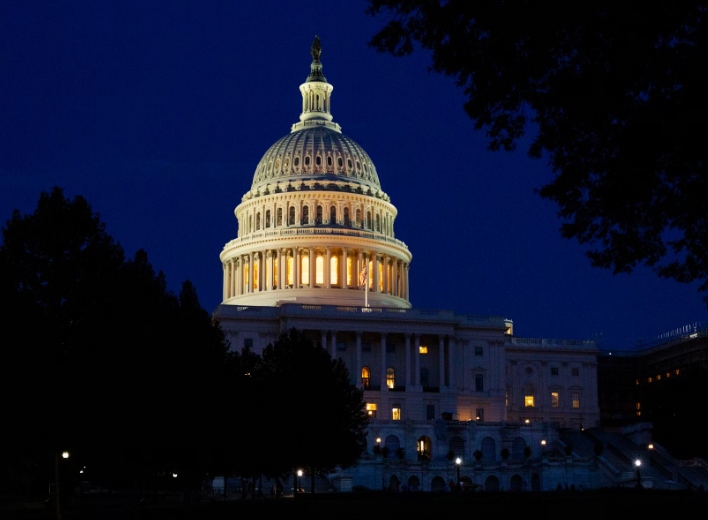Aditya Dalal traces the legislative evolution of the 2024 amendment to the Law on Combatting Prostitution in Iraq, particularly highlighting its draconian provisions on criminalising same-sex sexual relationships, promoting or facilitating same-sex relationships, gender affirmation procedures, and cross-dressing. He criticises this amendment for violating the Constitution of Iraq, the International Covenant on Civil and Political Rights, the Universal Declaration of Human Rights, and the Arab Charter on Human Rights.
On 27 April 2024, the Iraqi parliament passed an amendment to Legislation No.8 of 1988, titled the Law on Combatting Prostitution. Under this amendment, which not only imposes unreasonable restrictions on prostitution, the rights of the LGBTQ+ community have been severely curtailed, and promotion or facilitation of same-sex relationships shall face a minimum imprisonment of seven years, which may extend to a maximum of 15 years. The amendment was passed in the presence of 170 out of 329 lawmakers and received overwhelming support from the Acting Speaker, Mr Mohsen Al-Mandalawi, who vehemently asserted that this step was necessary to prevent sexual deviance and moral decay in the Iraqi population and to ensure that there exists no place for homosexuality in Iraq, which is a country of the religious prophets and saints.
Legislative evolution of the amendment
This amendment was first proposed in mid-August 2023 by parliamentarian Mr Raad al-Maliki, and it also advocated for the death penalty as a punishment for engaging in same-sex relationships. The penal provisions also included within their ambit punishments for transgender women, providing for three years imprisonment and a monetary penalty from five million to 10 million IQD (approximately £3,000 to £6,000) for those who “imitate a woman”, meaning dressing like a woman, wearing make-up and appearing in public like a woman. Although the previous Speaker of the Parliament withdrew this Bill in September 2023, the Federal Court ruled that the withdrawal of the proposed amendment was illegal, returning the Bill to the Parliament. The UN High Commissioner for Human Rights expressed grave concern over imposing capital punishments for homosexuality, mainly due to Iraq’s ratification of the International Covenant on Civil and Political Rights in 1971, which provided for the abolishment of capital punishment. The voting on the Bill was postponed during a session in mid-April, which ultimately culminated in the passing of the Bill on April 27, 2024, but with the deletion of the provisions providing capital punishment for those individuals found engaging in same-sex relationships.
Draconian provisions
The amendment provides for a minimum imprisonment of 10 years and a maximum imprisonment of 15 years for all those individuals found indulging in same-sex relationships. In contrast, it also imposes imprisonment for seven years and a monetary penalty of 10 million to 15 million IQD (approximately £6,000 to £9,000) for individuals promoting or facilitating same-sex relationships/homosexuality. The law also criminalises gender affirmation operations or hormone replacement therapy by determining imprisonment for three years for both doctors performing those operations and patients undergoing those surgeries. It also criminalises individuals dressing up in clothing of the opposite gender with imprisonment for one year up to three years or a fine of a minimum of five million IQD (approximately £3,000). These draconian provisions severely curtail the fundamental human rights of Iraqi citizens, particularly members of the LGBTQ+ community, which faces rampant discrimination and malicious attacksof kidnapping, rape, torture, and murder in Iraq.
Violating the Constitution and international instruments
Although there was no specific law prohibiting homosexuality in Iraq before the amendment to Legislation No. 8 of 1988, homosexuality was still curtailed by using provisions of morality and decency in the penal laws. However, despite the arguments of the Iraqi Parliament supporting a complete ban and criminalisation of homosexuality, it is essential to note that the amendment of various instruments, especially the Iraqi Constitution. The amendment, which seeks to discriminate based on private consensual same-sex relationships, violates Articles 14, 15, and 17 of the Constitution of Iraq, 2005, which talk about the right to non-discrimination, the right to enjoy life, security, and liberty, and the right to privacy. Furthermore, the amendment violates Article 2 (non-discrimination) and Article 17 (right to privacy) of theInternational Covenant on Civil and Political Rights, 1966, Articles 1 (equality), 2 (non-discrimination), and 12 (right to privacy) of the Universal Declaration of Human Rights, 1948, and Articles 3 (non-discrimination) and 21 (right to privacy) of the Arab Charter on Human Rights, 2004.
The passing of the amendment has been condemned by many nations, including the USA and Germany, and can potentially affect Iraq’s economy and foreign relations. While many countries celebrate the presence of the LGBTQ+ community, the situation in Iraq is nothing but a legal massacre of the LGBTQ+ community and those who support them. Considering the Iraqi Constitutional mandate and various international instruments promoting equality and non-discrimination, this situation demands urgent intervention.
All articles posted on this blog give the views of the author(s), and not the position of the Department of Sociology, LSE Human Rights, nor of the London School of Economics and Political Science.
Image credit: Alexander Grey





